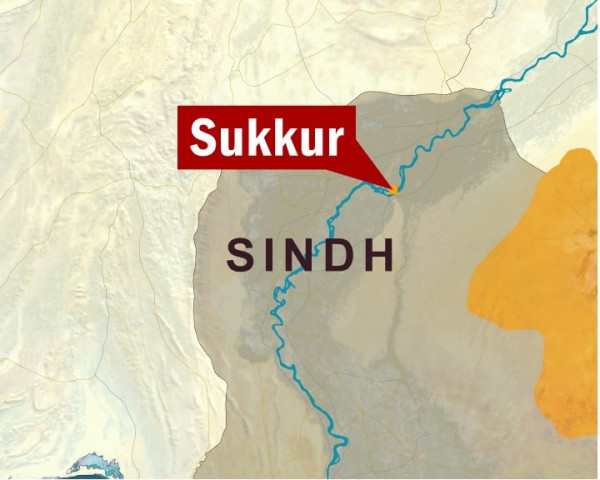Via boat, road and boat again, residents of Jacobabad are making the journey home
Using one hand to balance luggage and holding his wife’s hand with the other, a man is wades through floodwater.

The couple is trying to reach the railway track about 100 metres away from the road. Though the track is damaged, it is on higher ground where water is not standing and therefore people can walk there. After a walk of about three kilometres, they will embark on a tractor trolley that will take them near Jacobabad which is where their home is. However, to get to the city, they will have to take a boat.
Others, though, are making the journey from the road to the railway track in boats.
The residents of Jacobabad, who had fled their homes fearing flash floods and were living either with their relatives or in relief camps and by the roadsides in Sukkur and Shikarpur, have started returning.
Near Lodra village, water is still flowing over the Shikarpur-Jacobabad road and the Frontier Works Organisation (FWO) is busy in reconstructing the road link to Jacobabad. Pipes 20 inches in diameter are being laid across the damaged road to direct water from the left side of the road to the right side and the road is being constructed over these pipes. A stretch of about 150 feet remains to be reconstructed which officials feel should be completed in three to four days. Once the road is made, people from Jacobabad would not have to take this complicated route back home.
Those returning to Jacobabad are gathered with their belongings, waiting for boats. About five army boats and 25 private ones are helping people cross the body of water in which a decomposed body is also floating. For those who have seen untold destruction in the past weeks, this sight doesn’t appear to be daunting.
“We are tired of living in relief camps in Sukkur and want to go to our homes in Jacobabad,” says 10-year-old Fazila. “My family was living in a camp at the airport road. Though we were getting cooked food twice a day, besides medical facilities, I am missing my home.”
Her mother Bhagul is looking perturbed. The weather is hot and the wait for the boats is long. When asked why she left her home, she says the authorities in Jacobabad issued flood warnings, therefore they moved to a relief camp in Sukkur. Though they didn’t have any cattle, she is worried about their belongings which she fears might have been stolen.
Another resident of Jacobabad, Gul Mohammad Lashari, also waiting for the boat, says he had shifted his family to their relatives in Quetta. “We were afraid that the flood might inundate our city and therefore we left quickly, leaving behind all our precious belongings,” he says. He too is worried about looting.
“People were celebrating Independence Day as I was leaving my home,” says Abdul Majeed Soomro, resident of Airport Colony in Jacobabad. “It was very painful for me to leave my house on that particular day,” he says, his eyes filled with tears. “But to save my family, I had no other choice.”
Dhiyani Brohi, a resident of Brohi Muhalla in Jacobabad, is arguing with a boat owner who is demanding Rs200 to take her family to the railway track. “These people don’t fear God. We are already so worried and he is demanding Rs200 for a distance we could have walked,” she says angrily. Ghulam Rasool Unnar, the boat owner, settles for Rs80 and the family gets into the boat.
Given the large number of people who need to cross over to the railway track, thirty boats seem too few. Though it takes hardly ten minutes for a boat to reach the railway track and return, ironically it is people’s hurry which is delaying the process.
Published in The Express Tribune, September 4th, 2010.



















COMMENTS
Comments are moderated and generally will be posted if they are on-topic and not abusive.
For more information, please see our Comments FAQ